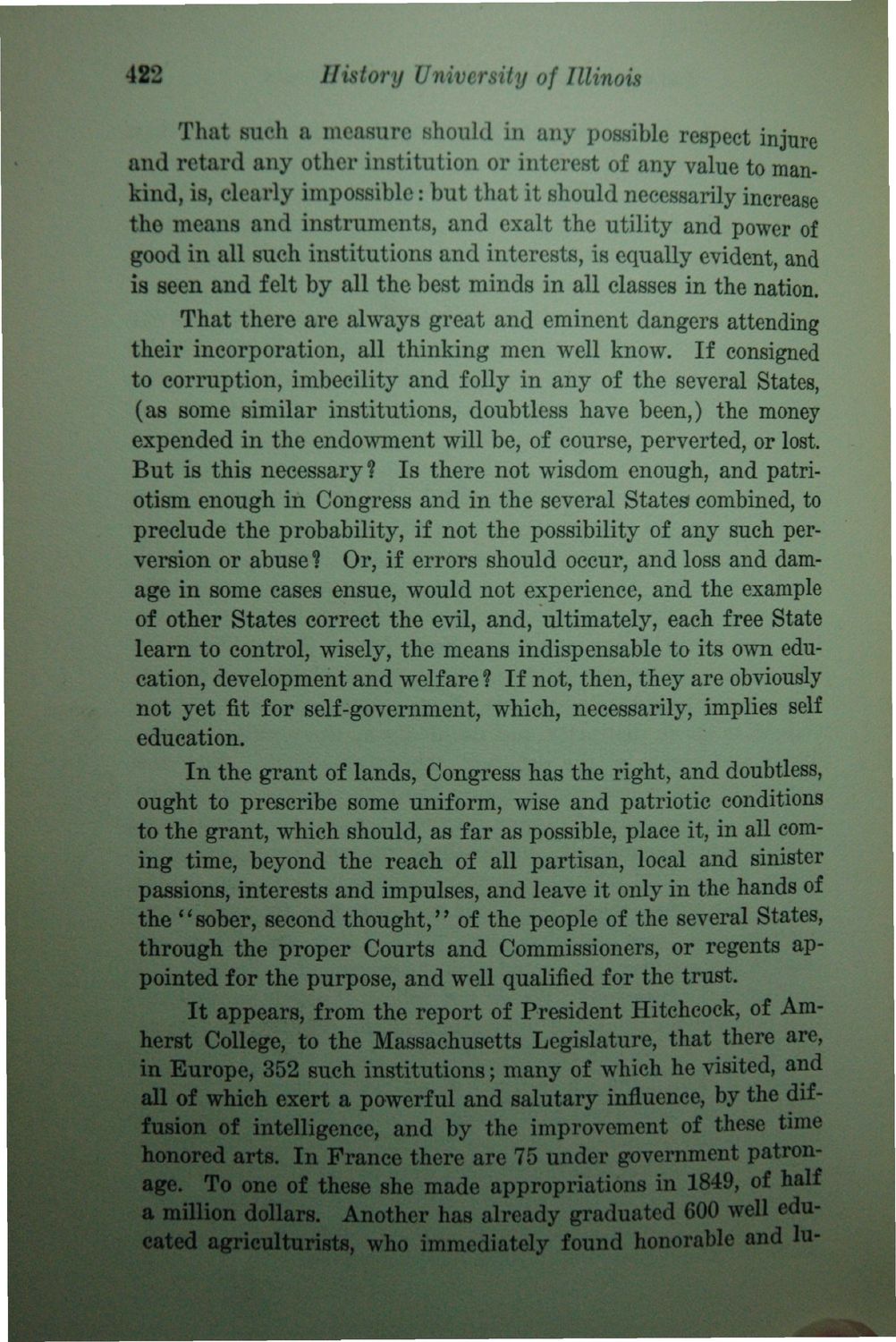| |
| |
Caption: Book - History of the University (Powell)
This is a reduced-resolution page image for fast online browsing.

EXTRACTED TEXT FROM PAGE:
422 History University of Illinois That such a measure should in any possible respect injure and retard any other institution or interest of any value to mankind, is, clearly impossible: but that it should necessarily increase the means and instruments, and exalt the utility and power of good in all such institutions and interests, is equally evident, and is seen and felt by all the best minds in all classes in the nation. That there are always great and eminent dangers attending their incorporation, all thinking men well know. If consigned to corruption, imbecility and folly in any of the several States, (as some similar institutions, doubtless have beenJ the money expended in the endowment will be, of course, perverted, or lost. But is this necessary? Is there not wisdom enough, and patriotism enough in Congress and in the several States combined, to preclude the probability, if not the possibility of any such perversion or abuse? Or, if errors should occur, and loss and damage in some cases ensue, would not experience, and the example of other States correct the evil, and, ultimately, each free State learn to control, wisely, the means indispensable to its own education, development and welfare ? If not, then, they are obviously not yet fit for self-government, which, necessarily, implies self education. In the grant of lands, Congress has the right, and doubtless, ought to prescribe some uniform, wise and patriotic conditions to the grant, which should, as far as possible, place it, in all coming time, beyond the reach of all partisan, local and sinister passions, interests and impulses, and leave it only in the hands of the "sober, second thought/' of the people of the several States, through the proper Courts and Commissioners, or regents appointed for the purpose, and well qualified for the trust. It appears, from the report of President Hitchcock, of Amherst College, to the Massachusetts Legislature, that there are, in Europe, 352 such institutions; many of which he visited, and all of which exert a powerful and salutary influence, by the diffusion of intelligence, and by the improvement of these time honored arts. In France there are 75 under government patronage. To one of these she made appropriations in 1849, of half a million dollars. Another has already graduated 600 well educated agriculturists, who immediately found honorable and In-
| |